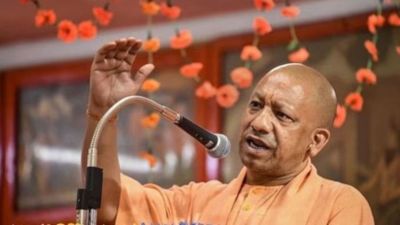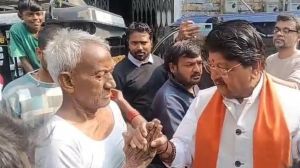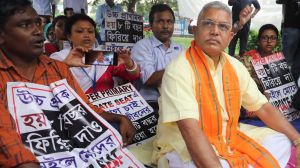The Poet8217;s Script
There's a world of difference between realism and pessimism,'' says Javed Akhtar, refuting the charge that his latest poetic offering, Tarka...

There8217;s a world of difference between realism and pessimism,8221; says Javed Akhtar, refuting the charge that his latest poetic offering, Tarkash Quiver, has shades of pessimism. 8220;Hunger cannot be described in beautiful words, that8217;s not poetry. Pessimism is defined by a lack of hope. On the other hand, to believe that everything is okay is mere escapism,8221; he asserts. Akhtar attempts to portray realistic situations, and while these essays may come across as caustic commentary, he points out, 8220;I really cannot label myself or my poetry, that is for others to do. I would describe Tarkash as me8217; 8211; what I have felt, observed and experienced8221;.
Labelled a poet, lyricist and script-writer, Akhtar is also into advertisements these days, which he admits he likes doing. 8220;It8217;s easy money,8221; he grins. And dismisses off criticism for the same. 8220;What is wrong with it? There should be no problems as long as I have no moral qualms about the product read, no zarda or pan masala ads!. And there are absolutely no guilt feelings about earning money,8221; he says firmly, adding that Indians are made to feel ashamed if they pursue monetary gains.
Naturally articulate, the versatile Akhtar can switch the direction of his pen to suit whatever genre he8217;s writing for. But how does he adjust his style of writing to such varied fields? 8220;It happens automatically. One has to understand the value of communication. For instance, when a teacher addresses her students, she says the same thing in a different language, but when she goes to the staff room, she adopts a different language when she talks to her colleagues,8221; he explains.
Not averse to experimentation, Akhtar recently brought out an album, Breathless, with Shankar Mahadevan. It is a fusion of poetry and pop, a synthesis of tradition and modernity. Akhtar comes down heavily on Indian pop, which he feels has missed the point altogether. 8220;The lyrics in Western pop music can sometimes be literature, for instance, songs by The Beatles, but Indian pop is gibberish. The belief that modern is obscene is erroneous; modernity means rational thoughts, justice and equality,8221; he says, and adds that this modernity has emerged in Breathless.
His poetry reflects changing times, which Akhtar says is a process of osmosis. About being labelled an Urdu poet, Akhtar quips, 8220;When people stop understanding Hindi, they say it8217;s Urdu. Urdu, contrary to popular perception, is not dying. In fact, it8217;s riding the crest of popularity. In Hindi cinema, most major writes have been Urdu writers.8221;
According to Akhtar, Urdu is Sanskrit-rooted, and Hindi dictionaries have 7,000 words of Persian origin. 8220;Actually, when you write from left to right, it8217;s Hindi, and when it8217;s vice-versa. it is Urdu,8221; he chuckles. 8220;And the average Indian doesn8217;t speak either,8221; he continues. Akhtar has faith in the people8217;s language, which he says is Hindustani 8211; a coming together of Hindi and Urdu 8211; that has acquired a code of its own. This is the language heard in popular cinema 8211; a language that owes many a nuance to his nimble pen. Talking about his contribution to the film industry, this script-writer and lyricist says, 8220;The difference between writing scripts and penning lyrics is like that between a 100-metre dash and a marathon8221;.
8220;The film industry today is in a bad shape, content-wise. The best is behind us. Yes, we have advanced technically,8221; he says, 8220;but that is all. This is a kind of manifestation of what is happening in society. Moreover, with time, things change 8211; expressions, metaphors, diction..8221;
However, Akhtar says, not without humour, that he does not want to sound pessimistic. 8220;A 1000-year tradition cannot be reduced to ashes with the onslaught of Channel V and MTV. Cultural education is important. How many children see their parents reading poetry? How many parents take their kids to a classical music concert?8221; Words from an intelligent muse?
- 01
- 02
- 03
- 04
- 05































